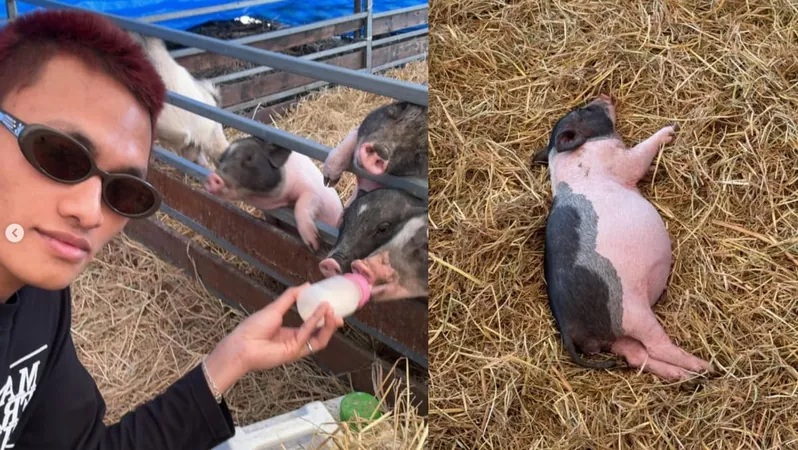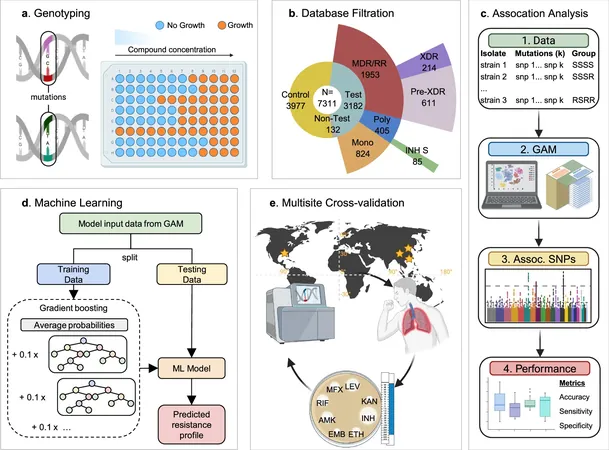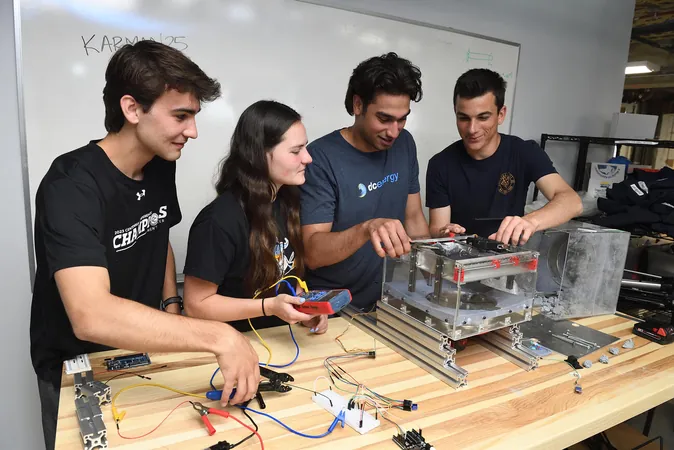
Malaysian Influencer Under Fire for Feeding Piglets During Thailand Trip: A Religious Controversy Unfolds
2025-01-20
Author: Siti
A Malaysian influencer, known by the handle @Imranbard, has ignited a heated discussion surrounding Islamic beliefs after he shared photos of himself feeding piglets during a recent trip to Thailand. The Instagram post, which quickly went viral, showcases two images: one featuring a piglet relaxing in its pen and the other capturing Imran tenderly feeding the animal with a bottle.
The backlash was swift and intense, as many followers expressed their disapproval. Critics argued that by being in close proximity to pigs, Imran was infringing upon Islamic law, which prohibits Muslims from selling, consuming, or having physical contact with pork products. Comments such as “This makes me feel sad” and “What’s the fun in feeding milk to piglets?” flooded his post.
However, not everyone condemned his actions. Some supporters defended his right to show kindness, with one user proclaiming, “I never thought that feeding piglets went against our religious teachings.” Another supporter added, “Yes, Imran isn’t allowed to touch or eat the animal, but that doesn’t mean he can’t treat them with kindness.”
The controversy has sparked a vital conversation around the interpretation of Islamic law when it comes to animal welfare. Prominent Muslim missionary, Da’i Wan, lent his voice to the discussion, labeling Imran’s actions as noble. He stated, “Helping animals, especially those in need, is a commendable act. We shouldn’t conflate our religious rules with the act of treating all creatures with compassion.”
In response to the backlash, Imran explained his reasoning for the post, reiterating that his experience was about fostering kindness towards animals. "Even if I hadn’t posted this, pigs are present in many places. I shared this because it was my first time feeding a piglet. It was a beautiful experience for me,” he wrote, acknowledging that opinions on this matter can greatly vary.
This incident raises broader questions about cultural practices and individual beliefs, especially among young Muslims navigating their identities in today’s diverse society. As the conversation continues, it serves as a reminder of the delicate balance between personal experiences and communal religious beliefs in an increasingly interconnected world.




 Brasil (PT)
Brasil (PT)
 Canada (EN)
Canada (EN)
 Chile (ES)
Chile (ES)
 Česko (CS)
Česko (CS)
 대한민국 (KO)
대한민국 (KO)
 España (ES)
España (ES)
 France (FR)
France (FR)
 Hong Kong (EN)
Hong Kong (EN)
 Italia (IT)
Italia (IT)
 日本 (JA)
日本 (JA)
 Magyarország (HU)
Magyarország (HU)
 Norge (NO)
Norge (NO)
 Polska (PL)
Polska (PL)
 Schweiz (DE)
Schweiz (DE)
 Singapore (EN)
Singapore (EN)
 Sverige (SV)
Sverige (SV)
 Suomi (FI)
Suomi (FI)
 Türkiye (TR)
Türkiye (TR)
 الإمارات العربية المتحدة (AR)
الإمارات العربية المتحدة (AR)